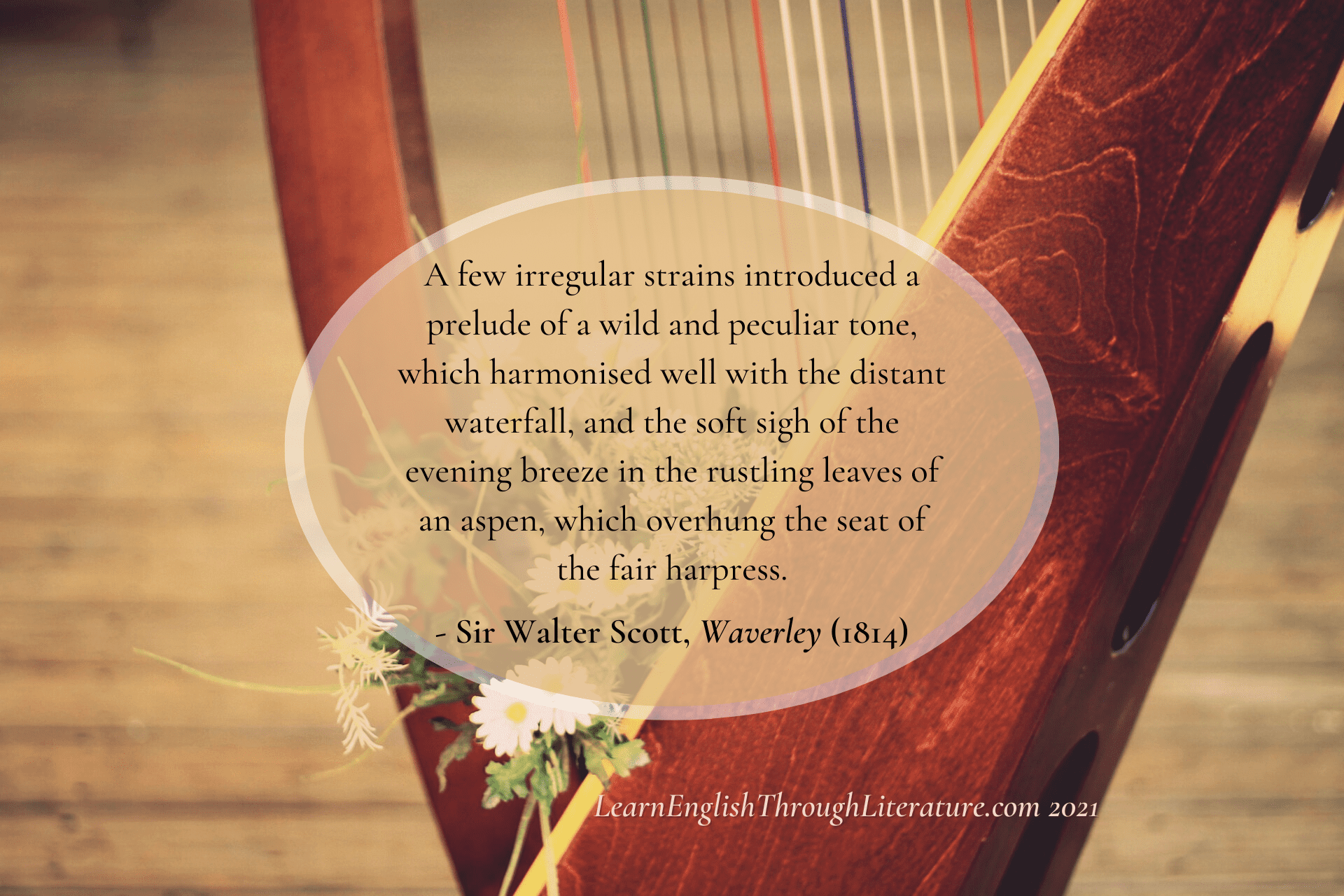In our passage from Sir Walter Scott’s great historical novel Waverley (which we looked at in Part 1 of this Lesson), we see how Edward Waverley meets with Flora MacIvor and her companion Cathleen in a remote spot in the Scottish Highlands, where Flora plays on the harp and sings enchanting (fascinating) songs. Waverley is mesmerised (entranced) by the beauty of the scene, the songs, and of course Flora. 🏴
👉 Such a description allows us to see many new words in context, especially adjectives or nouns that reflect one of the primary five senses.
This is a list I have compiled (gathered together) from our passage above:
(Not all the words are used by Scott to reflect the sense I associate them with – such as ‘exquisite’ describing taste – but I still grouped them in this manner because you can indeed use these words to describe those senses).
..
✏️ SIGHT
gazing
tinge
brilliancy
complexion
scenery
..
✏️ SOUND
murmur
declaration
harmony
exclaiming
utter
measured
monotonous
recitative
strains
tone
sigh
rustling
..
✏️ TOUCH
mossy
mist
breeze
..
✏️ TASTE
exquisite
discern
..
✏️ SMELL
Where are the words describing smell?
In fact, Sir Walter Scott didn’t use any smell-related words in this passage.
👉 However, here is a little exercise for you:
Now that you have read all the passages (in Part 1) and can picture the scene described in your imagination, what kind of smells do you think Edward Waverley might have noticed?
Here are a few ideas to help you get started:
✏️ He might have felt that the breeze smelled fresh.
✏️ He might have felt that the air surrounding the stream and plants smelled grassy and damp.
✏️ And because he was in the Scottish Highlands which are famous for heather flowers, he might have smelled the aroma of the native wildflowers.
…
After today’s Lesson, you will find yourself noticing more words in English that describe one of our five senses. And better still, you may start using a few yourself just to enhance your own English conversations! 🌼




